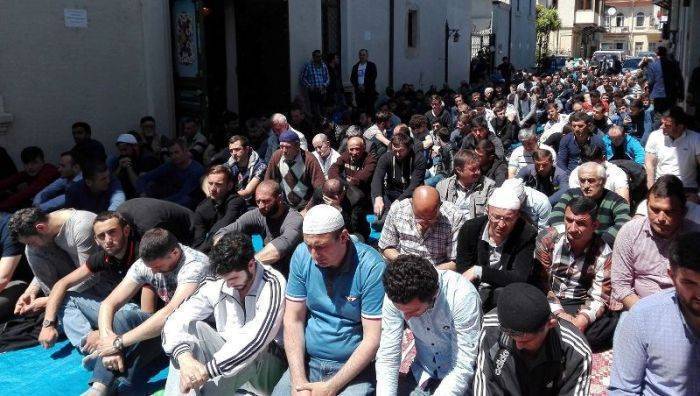საერთო ცხელი ხაზი +995 577 07 05 63


On September 30, 2019, Batumi City Court rendered a historic decision in the case on construction of new mosque in Batumi and held the denial of permit for construction of new mosque in Batumi to be discriminatory and unlawful. Unfortunately, Batumi City Hall appealed the decision in the second instance court and in this manner again crudely disregarded the historic demand, the needs and the rights of the Muslim community in Batumi related to building of a new mosque. In these circumstances, when Batumi City Hall decided to choose the strategy of delaying the execution of the judgement through the appeal mechanism, on December 4, 2019, non-entrepreneurial (Non-commercial) legal entity “New mosque construction fund” also submitted an appeal seeking invalidation of part of the Batumi court decision which rejected the claim on obligating the City Hall to issue a construction permit for the mosque and requesting that Batumi City Hall is directly instructed to issue appropriate legal acts for the first stage of construction permit deliberation. As it is known to the public, the subject matter of the dispute in Batumi City Court was the lawfulness of Batumi City Hall decisions on “denial of special (zonal) agreement for building the new mosque in Batumi” and on “denial of approving conditions for the use of land for construction”. On September 30, 2019, Batumi City Hall rendered a decision of utmost significance, declared the said decisions unlawful and upheld the requests of the claimants on the invalidation of those decisions qualifying the treatment as discriminatory on religious grounds.
Batumi City Court did not uphold the claimant’s third request aimed at eliminating the discriminatory treatment and concerning direct obligation of the City Hall to issue special (zonal) agreement for building the new mosque in Batumi and to approve conditions for the use of land for construction. With regard to these claims, the court held that decision on the issue fell within the discretionary powers of the City Hall and the latter had to discuss the requests on issuing the disputed legal acts anew.
The court conducted a thorough and comprehensive examination of the factual circumstances of the case and held that the presence of seven orthodox churches in tight residential areas of the zone, in which the claimant was denied a construction permit, indicated that the treatment in question was discriminatory. Batumi City Hall held that differentiation of religious organizations in enjoyment of their rights cannot be justified by any kind of legitimate purpose and represents discrimination on religious grounds. In these circumstances, we believe that the only avenue for eliminating discriminatory consequences was instructing City Hall to issue appropriate legal acts (first stage of construction permit deliberation).
We believe that the court had to consider that the discriminatory treatment by Batumi municipality City Hall is not limited to denying requested legal acts through onetime decisions, rather the discriminatory treatment is continuous through denial to issue appropriate legal acts necessary for construction permit.
The court did invalidate the illegal acts issued by Batumi City Hall, however, it did not eliminate the consequences of withholding construction permit and did not instruct the respondent to issue them in favor of the fund, due to which the actual impact is still absent for the claimants and their rights and interests are continuously harmed.
Appealing of the court decision by City Hall illustrates, that not only does the local government not show the will to execute fair decision of the court and ensure timely and effective restoration of rights violated through discriminatory treatment, but through the use of court mechanisms it intentionally tries to delay the process and impede it. Such approach deepens inequality and ingrains feelings of injustice among Muslim community and is incompatible with the idea of an inclusive and rule-of-law state.
Human Rights Education and Monitoring Center (EMC) and Tolerance and Diversity Institute (TDI) representing interests of the non-entrepreneurial (Non-commercial) legal entity “New mosque construction fund” in court will continue to inform the public about the developments related to court proceedings on construction of the new mosque in Batumi.
The website accessibility instruction